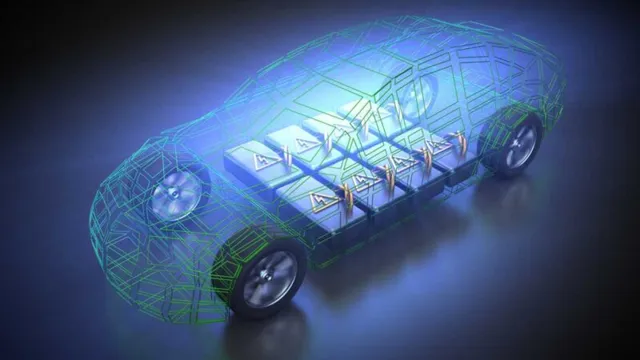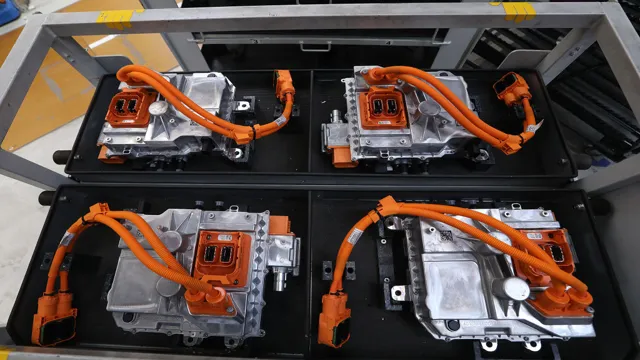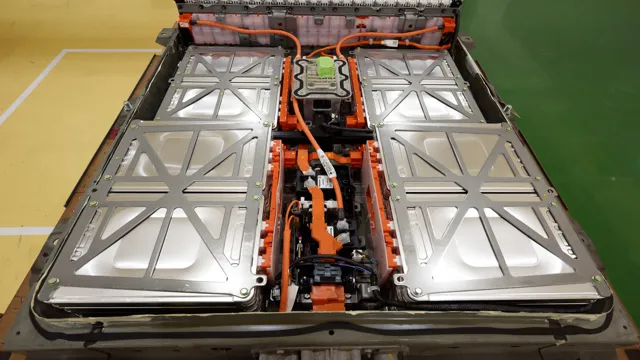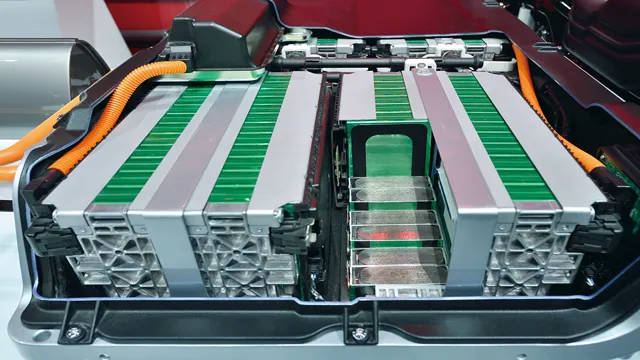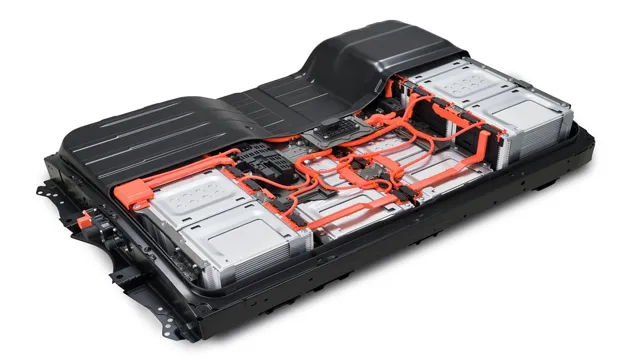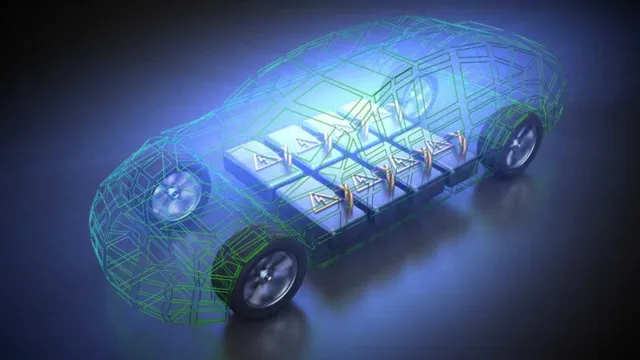10 Affordable Electric Battery Cars to Fuel Your Savings
Electric cars are becoming increasingly popular as people look for more environmentally-friendly transportation options. However, one big question that potential electric car owners have is about the cost of owning an electric car. Many wonder if the cost of purchasing an electric car, as well as the ongoing costs of charging and maintaining it, will outweigh the benefits.
In this blog post, we’ll take a closer look at the cost of owning an electric car, weighing the initial investment, savings on fuel, and ongoing maintenance costs. By the end, you’ll have a clear idea of whether an electric car is the right choice for your lifestyle and budget.
Initial Purchase Price
When it comes to purchasing an electric battery car, the initial purchase price can be a bit more expensive compared to a traditional gasoline-powered vehicle. This is due to the fact that the technology used in electric cars is still relatively new and the production scale is yet to be fully optimized. However, it’s worth noting that electric cars can help you save money in the long run by minimizing refueling costs, tax incentives, and maintenance expenses.
Furthermore, as the technology becomes more advanced and the demand for electric cars increases, we can expect the prices to gradually drop while the potential savings continue to grow. Nevertheless, if you’re looking to buy an electric car now and are concerned about the initial cost, it’s important to consider your financial situation and budget before making the purchase. Additionally, it’s always wise to research various electric car options thoroughly to find the one that suits your needs and budget best.
Comparison of Popular Electric Cars and Their Prices
When it comes to electric cars, one of the most important factors to consider is the initial purchase price. Comparing popular electric cars, such as the Tesla Model 3, Chevy Bolt, and Nissan Leaf, you’ll see that there can be significant price differences between them. For example, the Tesla Model 3 starts at around $37,000, while the Chevy Bolt starts at around $31,000 and the Nissan Leaf at around $32,000.
Of course, these prices can vary depending on the model and features you choose. If you’re on a budget, the Chevy Bolt and Nissan Leaf may be more appealing. However, if you’re willing to spend a bit more for a luxurious feel and longer range, the Tesla Model 3 could be the perfect fit.
Ultimately, the initial purchase price is an important factor to consider, but it’s not the only one. You’ll also want to consider factors such as range, charging time, and overall performance to find the electric car that’s right for you.
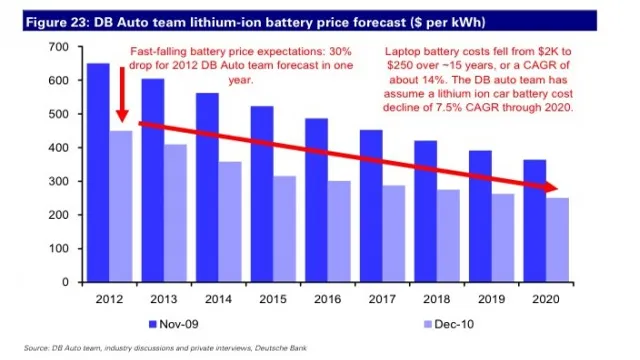
Factors that Affect the Price of an Electric Car
Initial Purchase Price When it comes to purchasing an electric car, the initial cost of the vehicle can vary greatly depending on several factors. Firstly, the make and model of the car can be a major determinant in the price. Generally, luxury brands and vehicles with high-end features come with a higher price tag.
Additionally, the size of the car can also make a difference. Larger electric cars tend to cost more than smaller ones. Another factor to consider is the battery size and range of the car.
Cars with larger batteries and longer ranges can cost more due to the technology and materials used. Finally, government incentives and rebates can play a role in the initial cost of an electric car. Some countries and states offer tax breaks or financial incentives for purchasing an electric car, which can significantly reduce the upfront cost.
Overall, while the initial cost of purchasing an electric car may seem daunting, it’s important to consider all factors before making a decision and to explore any available incentives or discounts.
Long-Term Savings
Investing in an electric battery car can save you money in the long run. Although the upfront cost may be higher than a gas-powered vehicle, the cost of fuel and regular maintenance is significantly lower. Electric cars can be charged at home overnight, reducing the need for trips to the gas station and saving you money in the long run.
Additionally, electric cars require less maintenance than traditional cars, as they have fewer moving parts that need regular servicing. This means you’ll spend less money on oil changes and other routine maintenance. While the initial investment may seem daunting, the long-term savings make it a smart choice for those looking to save money on transportation costs.
So, if you’re in the market for a new car and looking to save money in the long run, consider investing in an electric battery car.
Charging Costs vs. Gasoline Costs
When looking at the long-term savings of electric cars versus traditional gasoline-powered vehicles, the biggest factor is the cost of charging versus the cost of gasoline. While the initial purchase price of an electric car may be higher, the overall savings over time can be significant. With the cost of electricity usually much lower than gasoline, charging an electric vehicle can cost as little as a few cents per mile, while gasoline can cost several times more.
In addition, many areas offer incentives and tax breaks for purchasing an electric car, which can further offset the initial cost. While there are still some limitations to the infrastructure and range of electric cars, the potential for long-term savings and the positive impact on the environment make them a compelling option for many drivers. So when looking for a vehicle that offers both long-term cost savings and a smaller carbon footprint, an electric car could be the way to go.
Maintenance and Repair Costs
Maintenance and Repair Costs When it comes to owning a vehicle, maintenance and repair costs can quickly add up. However, investing in regular maintenance can actually save you money in the long run. By keeping your vehicle in good condition, you can prevent larger, more costly repairs from arising.
Additionally, regular maintenance can improve fuel efficiency, thereby saving you money on gas. It’s important to stay proactive about maintenance instead of waiting until something goes wrong. By doing so, you can catch potential issues early and save even more money in the long run.
So while it may seem like an unnecessary expense in the moment, investing in regular maintenance can ultimately help you keep more money in your pocket.
Tax Credits and Incentives
Tax credits and incentives can be an excellent way to save money over the long term. By taking advantage of applicable tax credits, individuals and businesses can reduce their tax liability, which ultimately results in more money in their pockets. For example, some tax credits are available for energy-efficient upgrades such as solar panels, which can provide significant savings on monthly energy bills.
Additionally, some states offer tax incentives for businesses that invest in renewable energy or hire individuals from underrepresented groups. While it can take time and effort to research and apply for tax credits and incentives, the potential benefits make it worthwhile. In the long run, utilizing these savings opportunities can help individuals and businesses alike to be more financially secure and sustainable.
Total Cost of Ownership
Electric battery cars have gained popularity in recent years due to their environmentally friendly features, but when purchasing an electric car, owners need to consider the total cost of ownership. While electric cars may cost more upfront, they typically have a lower cost of ownership over time compared to traditional gas-powered cars. This is because they require less maintenance and have lower fuel costs.
Additionally, government incentives and tax credits can offset some of the initial costs of buying an electric car. However, it’s essential to keep in mind that the cost of the battery replacement can be high and can significantly impact the overall cost of ownership. Despite this, electric battery cars remain a cost-effective and eco-friendly alternative to traditional cars, which is why their demand continues to rise.
Calculating the Total Cost of Ownership for an Electric Car
Electric cars have become increasingly popular due to their eco-friendly and cost-efficient nature, but many potential buyers are unaware of the true cost of ownership. The total cost of ownership takes into account not just the initial purchase price, but also expenses like maintenance, fuel, insurance, and depreciation. While an electric car may have a higher upfront cost, it typically has lower running costs and requires less maintenance than a traditional gas-powered car.
Additionally, electric cars often have a longer lifespan and retain their value better than gas cars. By factoring in all of these costs, buyers can gain a more accurate understanding of the true cost of owning an electric car.
Comparison of Total Cost of Ownership for Electric and Gasoline Cars
When it comes to purchasing a car, the total cost of ownership is a crucial factor to consider. Electric cars are becoming increasingly popular due to their eco-friendliness and lower operating costs. While the initial purchase price may be higher compared to gasoline cars, the long-term benefits outweigh the costs.
Electric cars have lower maintenance costs as they have fewer moving parts and require less frequent oil changes. Additionally, they cost less to operate as electricity is cheaper than gasoline. When compared to gasoline cars, electric cars have a lower total cost of ownership over the long run.
It’s important to note that this may vary depending on individual factors such as driving habits and local electricity rates. Overall, when making a purchasing decision, it’s essential to consider the total cost of ownership and weigh the benefits of both electric and gasoline cars.
Conclusion
While electric cars may come with a higher upfront cost compared to traditional gas-powered vehicles, the long-term benefits make it a worthwhile investment. Electric battery cars offer an environmentally friendly alternative, reducing our carbon footprint and creating a sustainable future. Not to mention, the cost savings from not having to purchase gas and decreased maintenance expenses make it a smart financial decision in the long run.
So, while the initial investment may shock you, the ongoing benefits will keep you charged up and ready to hit the road in style.”
FAQs
How much does an electric car battery cost?
The cost of an electric car battery varies depending on the make and model of the car, but on average it can range from $5,500 to $15,000.
How long does an electric car battery last?
The lifespan of an electric car battery can vary depending on maintenance, usage, and environmental factors, but on average it can last between 8 to 10 years.
Can you upgrade the battery in an electric car?
It is possible to upgrade the battery in an electric car, but it can be costly and may void the car’s warranty. It is recommended to consult with a certified dealer before attempting to upgrade.
How much does it cost to replace an electric car battery?
The cost to replace an electric car battery can vary greatly depending on the make and model of the car, but on average it can range from $10,000 to $20,000. It is important to note that some manufacturers offer battery replacement programs that can bring down the cost.
